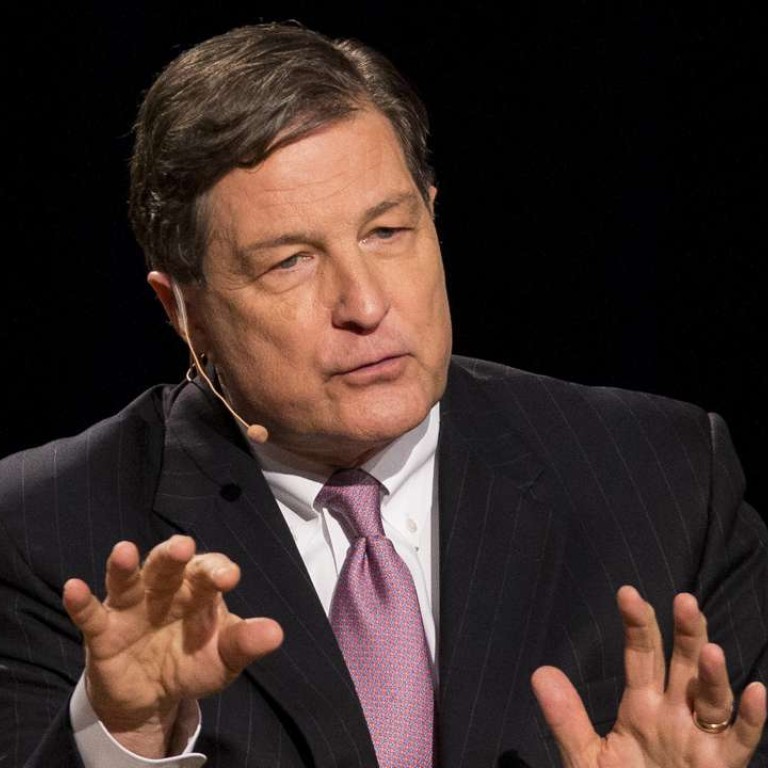
Fed official quits early after taking blame for leak in 2012
Jeffrey Lacker resigning six months sooner than previously announced
Federal Reserve Bank of Richmond President Jeffrey Lacker is resigning immediately, six months sooner than previously announced, after disclosing his role in the leak of information related to the central bank’s deliberations in 2012.
“I regret that in this instance I crossed the line to confirming information that should have remained confidential,” Lacker said in a statement on Tuesday sent by the law firm McGuireWoods in Richmond, Virginia. “In 2012, my conduct was inconsistent with those important confidentiality policies.”
Lacker, who had previously announced he would retire in October, declined to comment beyond the statement when contacted by phone.

In the statement, Lacker apologised to Fed colleagues for breaking the central bank’s communications policy when he participated in an interview with an analyst, who brought up details of the Federal Open Market Committee’s September 2012 policy discussion. During his conversation with the analyst at Medley Global Advisors, Lacker said he didn’t decline to comment when non-public details of the FOMC meeting came up, indicating he wasn’t the original source of the leak.
Medley published a newsletter in October 2012 that revealed details of the Fed’s September closed-door deliberations one day before a record of the meeting was made public. The report led to an internal Fed investigation, and Lacker said he failed to provide a full account about his conversation with the analyst in an interview with the Fed’s general counsel in December 2012.
The Justice Department and FBI joined the inquiry in 2015 amid pressure from Congress for details about the leak.
Lacker said he disclosed the breach in 2015 to law enforcement officials during an interview that was part of an investigation. “In the subsequent 2015 interview with law enforcement officials, I did disclose that the analyst was in possession of confidential information during my October 2, 2012 conversation with her,” Lacker said.
In its September 2012 meeting, the FOMC decided to buy US$40 billion a month of mortgage securities in the third round of so-called quantitative easing.
The Medley report, titled “Fed: December Bound,” telegraphed the possibility that US$45 billion of US Treasury purchases would be added to the programme, as well as the possible adoption of guidelines on levels of unemployment and inflation that officials would seek to achieve before raising interest rates from near zero.
The Richmond Fed, in a separate statement on its website Tuesday, said the bank’s board of directors took “appropriate actions” after learning the outcome of the government investigation. Richmond Fed First Vice President Mark Mullinix is serving as the bank’s acting president. The bank places “a high priority on safeguarding information.”
Lacker isn’t a policy voter on the FOMC this year.

